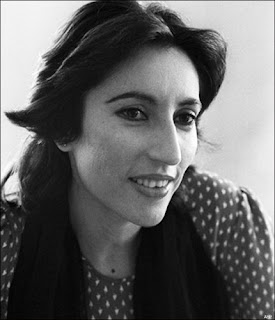Benazir Bhutto “From Prison to Prime Minster”
Benazir Bhutto “From Prison to Prime Minster”

If you don’t live for something, you die for nothing. Benazir Bhutto lived for something. Women can find strength in here dedication overcoming discrimination, being discredited, being patronized, and her strength of being alone or being killed. Stand for something, don’t lay down for anything! She is not important because of the power she had had. She is not important because of her status of being a woman. When one looks at what she overcame and what she would not put up with, you can understand her importance and you can feel the world’s loss.
If nothing please read each quote and reflect on how it relates to your life. Not as a Pakistani, not as a government politician but as a fellow human and your prominence of which is not appreciated, respected, and revered.
Benazir Bhutto
21 June 1953 – 27 December 2007
On
In the preceding decade of political struggle, Ms. Bhutto was arrested on numerous occasions; in all she spent nearly 6 years either in prison or under detention for her dedicated leadership of the then opposition
Benazir Bhutto was born in
Ms. Bhutto is the author of "Foreign Policy in Perspective" (1978) and her autobiography, "Daughter of Destiny" (1989). She received the Bruno Kreisky Award for Human Rights in 1988 and the Honorary Phi Beta Kappa Award from Radcliff in 1989.
She has been mentioned as "The world's most popular politician" in the New Guinness Book of Record 1996.
The "Times" and the "Australian Magazine" (
She has received many honoury degrees and awards from several countries.
Obituary: Benazir Bhutto
Benazir Bhutto followed her father into politics, and both of them died because of it - he was executed in 1979, she fell victim to an apparent suicide bomb attack.
Her two brothers also suffered violent deaths.
Like the Nehru-Gandhi family in
His government was one of the few in the 30 years following independence that was not run by the army.
Born in 1953 in the
She was twice prime minister of
On both occasions she was dismissed from office by the president for alleged corruption.
The dismissals typified her volatile political career, which was characterised by numerous peaks and troughs. At the height of her popularity - shortly after her first election - she was one of the most high-profile women leaders in the world.
Young and glamorous, she successfully portrayed herself as a refreshing contrast to the overwhelmingly male-dominated political establishment.
But after her second fall from power, her name came to be seen by some as synonymous with corruption and bad governance.
The determination and stubbornness for which Ms Bhutto was renowned was first seen after her father was imprisoned by Gen Zia ul-Haq in 1977, following a military coup. Two years later he was executed after a much criticised trial on charges of conspiring to murder a political opponent
Ms Bhutto was imprisoned just before her father's death and spent most of her five-year jail term in solitary confinement. She described the conditions as extremely hard.
During stints out of prison for medical treatment, Ms Bhutto set up a
She returned to
After Gen Zia died in an explosion on board his aircraft in 1988, she became one of the first democratically elected female prime ministers in an Islamic country


